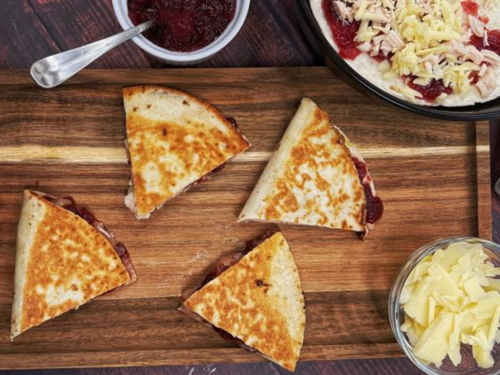The group of mostly Rhode Island-based nonprofits and cities suing over SNAP benefits stepped up pressure on the Trump administration on Tuesday.
The plaintiffs in the case known as Rhode Island State Council of Churches v. Rollins asked the federal judge in charge to order the federal government to send out SNAP payments in full. On Monday, the Trump administration announced that it would distribute SNAP benefits amounting to roughly half of what beneficiaries normally receive, to comply with a previous ruling in the case.
But even half-payments are in doubt after President Donald Trump wrote in a Truth Social post on Tuesday that his government would issue SNAP benefits “only when the Radical Left Democrats open up government, which they can easily do, and not before!”
The Martin Luther King, Jr. Community Center operates a food pantry bank in Newport and is one of the plaintiffs in the case. Executive Director Heather Strout said any further delay in full SNAP payments will be “devastating to people.”
“This needs to be not something that we’re playing political standoffs with — this is basic human needs,” Strout said. “And we live in a country where this is not what we should be using (for political purposes.)”
The lawsuit comes from a group of nonprofits, cities, and a labor union that argued that the Trump administration’s decision not to issue SNAP benefits in November due to the government shutdown harmed not only those who receive payments but also the plaintiffs who serve them.
On Saturday, Rhode Island District Court Chief Judge John J. McConnell Jr. ordered the Trump administration to use a SNAP contingency account to send benefits. He also outlined other legal avenues the administration could use to fund SNAP during the shutdown.
On Monday, the U.S. Department of Agriculture, which oversees the SNAP program, said it would comply with the judge’s order by using the contingency funds, but that it would not tap other funding sources in order to ensure beneficiaries received their full monthly payment.
More than 143,000 Rhode Islanders and 1.1 million people in Massachusetts receive SNAP benefits.
Strout said the food pantry at the Martin Luther King, Jr. Community Center has seen crowds of people this week as uncertainty around SNAP benefits swirls.
“Normally we would see about 25 to 30 families on a Monday, and we saw double that yesterday,” Strout said. “Today, we’re seeing even more. I can’t tell you the number yet because there’s still tons of people downstairs.”
This story has been updated with additional information from Heather Strout.







